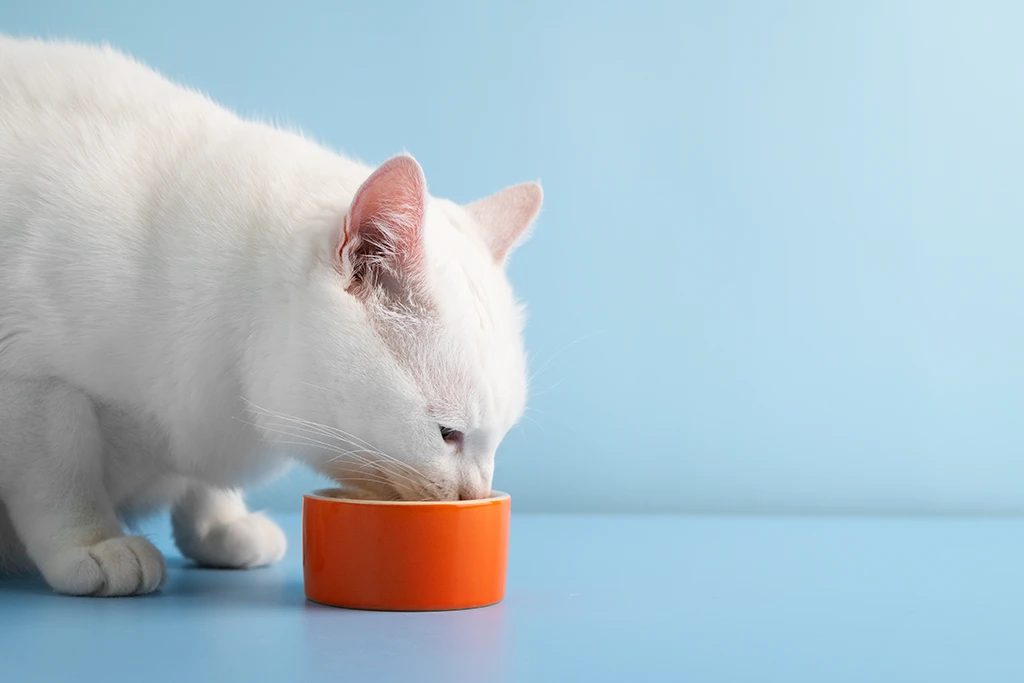

Many dogs and cats experience some form of dental disease in their lifetime. This ranges from mild gingivitis to more serious conditions like periodontitis and tooth resorption. These issues cause discomfort, bad breath, and even difficulty eating. While regular brushing and veterinary care are essential, CBD is gaining attention for its potential role in supporting pet oral health.
Table of Contents
ToggleFurry friends experience a variety of dental problems. Gingivitis, an inflammation of the gums, is a common issue. Periodontitis is a more serious condition that affects the tissues surrounding the teeth (Cunha, E., Tavares, L., & Oliveira, M., 2022). “Feline tooth resorption is a common issue in feline dentistry, with its severity increasing with age, and a careful intraoral radiographic examination is essential for accurate diagnosis,” (Pistor, P., et al., 2023).
If left untreated, dental disease affects a pet’s overall health and well-being.
CBD, short for cannabidiol, is a natural compound found in hemp. Unlike THC, it doesn’t have any psychoactive effects. Instead, CBD interacts with the pet’s endocannabinoid system (ECS), a complex network that helps regulate various bodily functions.
CBD has several properties that support a pet’s oral health.
Inflammation is common in many dental problems, including gingivitis and periodontitis. A Systematic Review of In Vivo Studies concluded that “CBD, CBG, and CBD+THC combination exert a predominantly anti-inflammatory effect in vivo, reducing pro-inflammatory and anti-inflammatory cytokine levels,” (Henshaw, F., et al., 2021). CBD is known for its anti-inflammatory properties, and it potentially helps soothe irritated gums and reduce swelling in the oral tissues contributing to a healthier oral environment for a pet.
Dental conditions cause significant pain and discomfort for furry friends. CBD has analgesic (pain-relieving) properties that potentially help manage this pain, making a pet more comfortable and improving their overall quality of life. Although there is no current study yet on the effects of CBD on pet dental pain, a literature review focusing on the pharmacology and mechanism of action of CBD for pain treatment concluded that “CBD shows analgesic and anti-inflammatory effects in various models, with potential clinical applications in treating neuropathic pain, inflammatory pain, and osteoarthritis,” (Mlost, J., Bryk, M., & Starowicz, K., 2020). Moreover, an animal trial showed that “CBD accelerates oral ulcer healing by inhibiting CMPK2-mediated NLRP3 inflammasome activation and pyroptosis, reducing pain and promoting lesion closure,” (Qi, X., et al., 2021).
Harmful bacteria play a major role in the development of plaque and gum disease. Some studies suggest that CBD has antimicrobial effects, potentially helping to combat these bacteria and maintain a healthy balance of microorganisms in the mouth. A literature review on non-psychotropic phytocannabinoids as promising molecules to develop novel antibiotics mentioned that “CBD exhibited a strong antimicrobial effect against Gram-positive bacteria, potentially serving as an alternative drug for tackling MRSA,” (Alfei, S., Schito, G., & Schito, A., 2023).
Veterinary visits, especially those involving dental procedures, are stressful for pets. CBD has calming effects (Hunt, A., et al., 2023) that potentially help reduce anxiety and stress in these situations. This makes the experience less traumatic for a pet and potentially aids in their recovery.

Pet parents who are considering using CBD to support their pet’s oral health have several options to choose from. Each method has its own advantages, so select the one that best suits a pet’s needs and preferences.
CBD oils and tinctures are a popular choice due to their versatility. They typically come in a bottle with a dropper, allowing for precise dosing.
CBD treats offer a tasty and convenient way to administer CBD. These treats come in various flavors and textures, making them appealing to even the pickiest eaters.
Determining the right CBD dosage for a pet is crucial for achieving the desired effects while ensuring their safety. Remember that every pet is unique, and factors like their size, age, health condition, and individual sensitivity all influence the appropriate dosage.
A general guideline is to start with a low dose of CBD and gradually increase it as needed. This allows pet parents to observe how their pet responds and find the optimal dosage that provides the desired effects without any unwanted side effects.
As the dosage is adjusted, closely monitor the pet for any changes in behavior or physical condition. If there are any adverse effects, consult the dog’s veterinarian. Finding the right dosage requires some patience and observation, but it’s essential for ensuring the pet’s safety and well-being.
The pet’s attending veterinarian is the best resource for personalized dosage guidance. They consider the pet’s individual needs and any other medications they are taking to recommend an appropriate starting dose and a plan for gradually increasing it, if necessary.

When it comes to the pet’s health, choosing high-quality CBD products is essential. Not all CBD is created equal, and selecting a product from a reputable source makes a big difference in its effectiveness and safety.
The quality of a CBD product varies significantly depending on factors like the source of hemp, the extraction method, and the manufacturing process. Low-quality products contain harmful contaminants, have inaccurate CBD concentrations, or even contain higher levels of THC, which are harmful to pets.
Always choose CBD products that are specifically formulated for pets. These products are designed with the pet’s unique needs in mind and typically come in concentrations and flavors that are safe and appealing to animals.
Reputable CBD brands prioritize quality and transparency. Some key things to look for are listed below.
Third-Party Lab Testing: Reputable brands conduct independent lab testing to verify the purity and potency of their products. Look for products with a Certificate of Analysis (COA) that clearly show the CBD content and confirms the absence of contaminants.
Organic Hemp: Choose products made with organically grown hemp. This ensures that the hemp was cultivated without the use of harmful pesticides or herbicides that end up in the final product.
Clear Labeling: The product label should clearly state the amount of CBD per serving, the type of CBD (full-spectrum, broad-spectrum, or isolate), and any other ingredients.
By taking the time to choose high-quality CBD products, pet parents help ensure that their pet receives the potential benefits of CBD safely and effectively.
While CBD shows promise, it’s important to remember that it’s not a replacement for professional dental care. Regular veterinary checkups and cleanings are crucial for maintaining a pet’s oral health.
When to See The Pet’s Veterinarian?
Maintaining good oral hygiene is crucial for a pet’s overall health and well-being. Just like humans, pets suffer from a variety of dental issues that cause discomfort, bad breath, and even more serious health problems if left untreated. While regular brushing and veterinary checkups are the foundation of good dental care, CBD offers an additional layer of support for pet oral health. CBD’s potential anti-inflammatory, analgesic, and antimicrobial properties make it a valuable addition to a comprehensive dental care routine.
Remember that CBD is not a substitute for professional dental care. Regular checkups and cleanings with a veterinarian are essential for preventing and treating dental issues. However, by combining professional care with the potential benefits of CBD, pet parents provide their pets with the best possible support for their oral health.
References

Table of Contents
Toggle